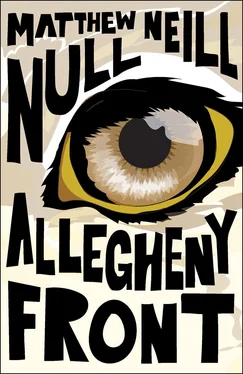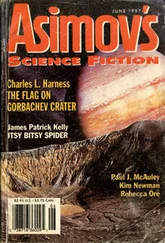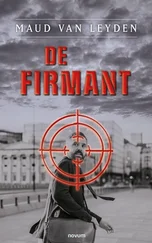Matthew Neill Null
Allegheny Front
All this repeated cant, therefore, about our American mountains is not true in point of fact. But what if it were? — yes, gentlemen, what if it were? And this question brings me to the gist of the matter.
— Philip Pendleton Kennedy, The Blackwater Chronicle: A Narrative of an Expedition into the Land of Canaan, of Randolph County, Virginia, a Country Flowing with Wild Animals, Such as Panthers, Bears, Wolves, Elk, Deer, Otter, Badger, &c., &c., with Innumerable Trout — by Five Adventurous Gentlemen, without Any Aid of Government, and Solely by Their Own Resources, in the Summer of 1851.
A LLEGHENY FRONT HAS FEW SENTIMENTAL TRAPPINGS. Traveling salesmen meet up with the guns of the landed poor; tourists die, loggers die, cranky uncles are pulverized. But as often as men kill each other in Matthew Neill Null’s singular, strong collection, they kill animals more. And not just game animals, either: black bears are massacred, bald eagles killed and crucified. In these intelligent and unpretentious stories, men’s stubbornness is a rock face, their anger a crown fire, their occasional tenderness a rill.
In an era where even the more esoteric of literary fictions tend to have moved away from the rural, away from the beasts of the forests and fields, away from land-based individual sustenance and the rhythms of seasons and tide, Null’s stories are remarkable for both their sharp relevance and their otherness. They seem to uncover a texture of living that’s increasingly alien to urban readers, who, for better or worse, make up the lion’s share of buyers and borrowers of contemporary literary fiction in the United States. It’s a gritty texture precisely defined by the details of natural places, without the slickness and bright primary colors of highly engineered, exclusively human habitats. Null’s subtler palette is browns and greens, yellows and grays, the blues of sky and water.
It’d be disingenuous of me to call these stories “authentic,” since I’m frankly unqualified to judge the authenticity of foreign cultural representations — and make no mistake, the divide between rural and urban life in this country in 2016 is stark enough to make one foreign to the other. Of course, it’s not a literal divide and is far more nuanced than this reductive formulation (for instance, I live in the middle of the desert in a warm, red state, but I grew up urban and cold, and I don’t change my own flats).
Still, we who live it know it instinctively: there are at least two nations at odds with each other here and now, a profound schism dividing their dominant cultures. (Journalist Colin Woodard has famously, and with fairly minimal controversy, put the number of geocultural nations within our formal national boundaries higher, in fact, at eleven — and in Woodard’s scheme Null’s literary homeland of West Virginia is itself split into three cultures, two rural-based and only one small northern part “Yankee.”)
So, like much of my reading demographic, I know almost as little of hardscrabble country life in West Virginia as it’s possible to know. But I know a bit about land-use policy, a smidgeon about wildlife management, and a fair amount about natural resource conflicts, and Null’s stories have an extensive grounding in all of these. They interest themselves in the brutality with which we’ve plundered our legacy of wild places, in the excruciating social limits that drive personal choices, and the economic corners into which we paint each other and ourselves. Almost every piece touches on some part of the class enmity that festers between rich and poor, educated and uneducated, those who understand the land as a treasure to be protected and those who eke out a tough living directly from it.
Yet Allegheny Front is anything but one-sided or simplistically dualistic. It remains at a distance from judgment, at a remove from easy definitions, unspooling a lucid and often painful history of appetite, exploitation, and bereavement.
— Lydia Millet
SOMETHING YOU CAN’T LIVE WITHOUT
THREADGILL HAD BEEN ONE OF THEM, or something like it. This part of the world hadn’t been penetrated by the Company in four seasons, ever since they lost him, their ace drummer, on the Blackwater River, where he’d been shot off a farmer’s wife by the farmer himself. While the man fumbled a fresh shell into the breech of his shotgun, Threadgill ran flopping out the back door and tumbled down the sheer cliff behind the cabin. There he came to rest in the arms of a mighty spruce. The tree held him like a babe till they rigged up a block and tackle to lift him out. They said he had nothing but socks on, argyle. The image bored into Cartwright’s brain like a weevil. The week the Company hired Cartwright on as a drummer, he found the dead man’s sucker list wrapped in oilskin and tacked under the wagon tongue. It was the secret of Cartwright’s success. He grew flush off commission in no time.
Polishing a new gold tooth with his tongue, Cartwright clattered down the road in a buckboard wagon. He followed the split-rail fence that wormed along the trace. Ironweed and seven sisters grew between the ruts, tickling the horses — a gelded pair of blood bays. The farther he traveled, the more the roadbed degraded. The spring rains had gnawed small ravines into it all the way down to the shining black chert; he kept his horses to a low canter, should they come upon a slip. The tunnel of rain-lush forest gave way, finally, to cleared farmland around the bend.
The only thing Cartwright knew about McBride, today’s prospect, was that the farmer was a sucker, though the few neighbors around there would have told Cartwright that no one knew the valley better than honest Sherman McBride — the creeks that bred trout, the caves that held flint — except for the two boys he raised off those mouthfuls of corn that rose from the fields and strained for sun. Even so, honesty would be the man’s downfall. Cartwright gazed up at the Allegheny Mountains that were a series of blue lines on the horizon. This was long before the forests were scoured off the mountains and the coal chipped from their bellies, before blight withered the chestnut stands. A dozen passenger pigeons trickled through the sky, the first Cartwright had seen that year despite all his travels. The cherry of his cigarette tumbled, and he jumped and slapped it out of his lap.
Ah! The passenger pigeons he remembered best of all. Every fall, his family had waited for the black shrieking cloud. Word was passed down from northern towns — Anthem, Mouth of Seneca — and there they were, a pitch river of millions undulating in the sky. When they touched down to rest, they toppled the crowns from oaks. They plucked any living plant and then the roiling swarm fell to the ground and tore at grass. Under them, no one could tell field from road.
“Whoever cut this grade,” Cartwright said to the horses, “must have followed a snake up the hollow. Followed a damned snake!” He roomed near the courthouse in Anthem, but he hadn’t been there in seven weeks. He was deep into the summer swing through the highland counties, all the way up to Job and Corinth, the old towns once called Salt Creek and Beartown until a religious fervor inspired their rechristening. Cartwright glanced at the crate jostling under the tarp. He said, “Damn, boys. I’d almost buy it myself to get shut of this situation.”
He swabbed his face with his tie. Soon, the sun burned off the fog and hoisted itself into the sky. “Horses, it’s hotter than two rats fucking in a wool sock. I tell you that much.”
Читать дальше












